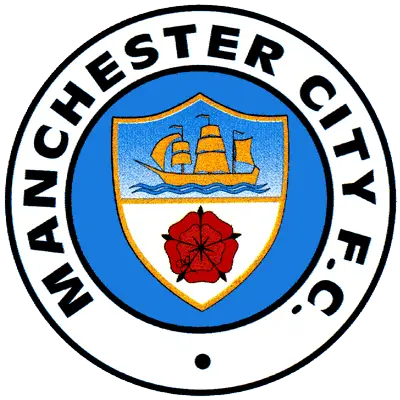The David Silva-fication of Phil FodenBy Sam Lee
Aug 30, 2022

Phil Foden of Manchester City celebrates after scoring their sides third goal during the Premier League match between Manchester City and AFC Bournemouth at Etihad Stadium on August 13, 2022 in Manchester, England.
“When David said it was his last year, I told the board we have Phil, so we don’t have to invest,” Pep Guardiola said a few years ago.
Another time, he said: “When David Silva leaves, we know exactly who our new magician will be.”
It served as an official confirmation of what had been said inside the Manchester City academy for the best part of a decade. Such was Phil Foden’s talent at an early age, his coaches and their bosses all thought of him as David Silva’s heir.
And yet, he doesn’t play like Silva at all.
Of course, that’s not to say he isn’t very good. Foden’s career — in terms of game time, on-field contribution and trophies — has probably surpassed expectations already, but in terms of playing like Silva, there is a big difference.
“I always talk about David Silva. Sometimes he slowed the rhythm to increase the rhythm, and Phil’s rhythm is always high,” Guardiola said in May, summing it up.
“It’s good because it’s aggressive and we need it, but sometimes he needs a little more in that position — that is only a question of time, not that he cannot do it, because he can do it without a problem.
“He still does all actions at high speed and sometimes you have to have some ‘pausa’ (the Spanish and South American terminology applied to players who put their foot on the ball, even if only for a brief second, and just wait for the right moment). Now he has the energy of youth and maybe winger suits him better a little bit right now.”

David Silva and Phil Foden in 2020 (Photo: Tom Flathers/Manchester City FC via Getty Images)
So there are changes that Foden can make to his game to be more like the Spaniard, whose metronomic ability to set the tempo of a game helped earn him a statue outside the Etihad Stadium. At the moment, it is considered a work in progress: one day Foden will get there.
But how does that evolution look?
The Silva-fication of Foden is a subject that has been thrown into the spotlight at the start of the new Premier League season.
A failure to square the ball to Erling Haaland in City’s win against Bournemouth a fortnight ago was, in fairness, a poor decision. It annoyed supporters and may have contributed to Foden being substituted at half-time, even after he had gone on to score himself.

Such is Haaland’s popularity with City fans, the previously untouchable Foden has suddenly and unfathomably become the subject of over-the-top criticism from some supporters.
After a similar passage of play against Newcastle, when Foden broke into the box down the left and took a shot, fans were in uproar online. Guardiola threw his hands in the air, too, although it is harder to tell whether this one was quite as easy to cut back.

In any case, when Foden tweeted that he was happy to have played in 100 Premier League games for City — at just 22, another sign of how well things are going — a lot of the replies instructed him to pass to Haaland. Incredible really.
There was a hint of frustration when Guardiola was asked about why Foden was taken off against Bournemouth.
“It was tactical,” he said.
Asked later to expand, Guardiola explained that he wanted to try Jack Grealish, adding that he felt bad for dropping the former Aston Villa man after an “awesome” display against West Ham the previous weekend.
When talking about Foden, Guardiola spelt out the good and left a little trail of breadcrumbs about the stuff that still needs work.
“Phil is so important, always Phil creates something unexpected, the action with the save, the pass, the goal, another two or three assists, he’s dynamic, his movement. But at the same time he’s young and has to understand sometimes what he has to do,” he said.
It should not be forgotten how much Foden has developed even in the past year or so. He didn’t quite set pulses racing last season, when he usually played as a false nine, compared to the previous season when he played on the wing and had to take on defenders. But the fact that Guardiola picked him as the false nine is a sign of his progress.
“He is a guy that keeps the ball really well. He’s so aggressive when he is arriving (in attacking positions),” said Guardiola in February 2021 after City won 4-1 at Liverpool – Foden switched from false nine to the wing at half-time.
“But he’s so young, still he doesn’t understand in some positions what you have to do. In the first half, he was not in the right positions. He’s a little bit distracted sometimes in these issues.
“Playing wide is easier for him but he will learn. In the first half, he was not in the positions we needed and that’s why we suffered in some moments to have the control.”
Within a few months of that, he emerged as probably City’s best false nine and they had that control in abundance.
Now the focus is on decision-making while in possession.

Pep Guardiola watches Phil Foden during training in July 2022 (Photo: Tom Flathers/Manchester City FC via Getty Images)
On Friday, Guardiola was asked about this process of adding different speeds — or gears as Mikel Arteta once described them — to Foden’s game, a la Silva.
“It’s a question of time,” Guardiola said. “I don’t want him to lose this gear, this pace that is unique. But at the same time, in the final third when you have the right decision with this gear, it’s amazing, but sometimes when the decision-making is not perfect, you have to reduce your gear to make better decisions.
“What I want is when he has the ball against the full-back, to go (and) score the goal. I don’t want him to pass back, but when you have three or four players on you there are one or two players free, and you have to play the ball.
“With the decisions it depends. Every situation is different. The biggest players take the right decision in every situation and every single action.”
About the non-passes to Haaland, he added: “He will review the images and he will see that in that position, always Erling is always there, it’s his biggest talent. Like I’ve said many times, it’s a question of time to know each other and see it.”
On Saturday against Crystal Palace, Foden set up Haaland with a cross from the left.
“Finally, Phil played the ball to me,” Haaland himself joked afterwards.
At that point in the game, Foden was actually playing as a left wing-back (where he played on his City debut in 2017). Once City had gone ahead at the weekend, Foden moved into midfield — and bore one or two hallmarks of… David Silva.
Guardiola had said in May that Foden would need time before playing in midfield, yet on Friday he said he is ready to do it now, and 24 hours later there was a cameo.
“He can play right now in the middle. He played there throughout his academy career but now we need him more up front. First, because his sense of goal is incredible, but I think he can adapt perfectly to the position of Kevin (De Bruyne) or (Ilkay) Gundogan or Bernardo (Silva) without a problem. He can do it right now, he doesn’t need to wait.”
As this thread by @City_tactics highlights, Foden was always looking to take possession.
Foden is constantly showing for the ball, receiving it under pressure, then laying it off first time, which is exactly how Silva, Gundogan and others can dictate the flow of a game. There are examples that contribute to the build-up of City’s fourth goal, such as how he comes to the ball and lays it off as Cheick Douc
oure snaps at his heels.
A few moments later, he does it again, doesn’t get the ball, then wants it yet again from the deeper role he arrived into.
He gets it from Ruben Dias and flicks it around the corner to Gundogan, who’s in acres of space to carry the ball forward and, eventually, pass to Haaland for his hat-trick.
Less than three years ago, it was a commonly held opinion that Foden needed more game time. Eighteen months ago, he didn’t understand the false-nine role well enough. Three months ago he wasn’t ready to play in midfield.
Now, he’s done all of those things. Next is to make better decisions.
At the age of 22, with 100 Premier League appearances under his belt, four league titles (including leading roles in two of them) and the Professional Footballers’ Association young player of the year award in the bag for the past two seasons, things have clearly been going pretty well.
As Guardiola keeps saying, it’s just a matter of time.











 oure snaps at his heels.
oure snaps at his heels.






